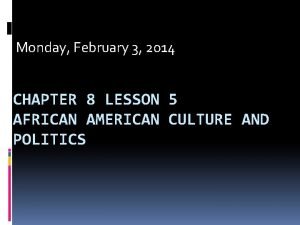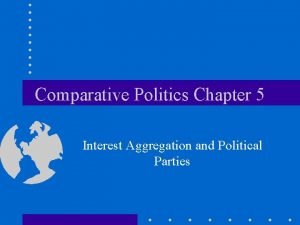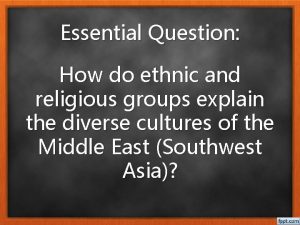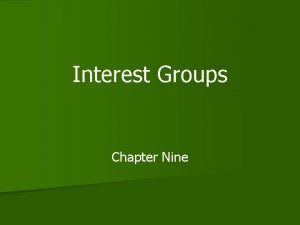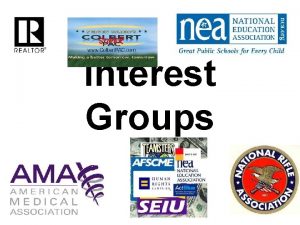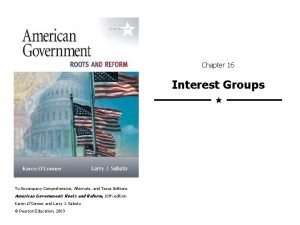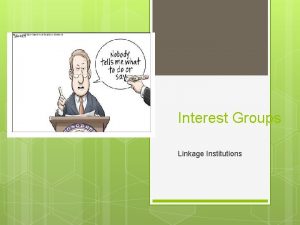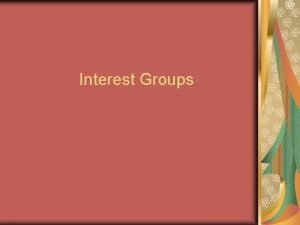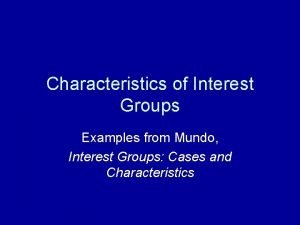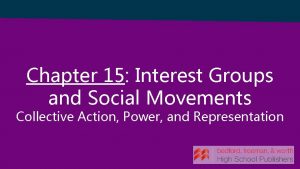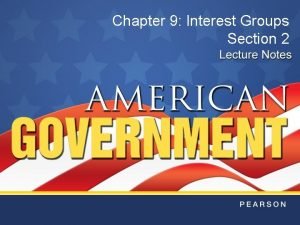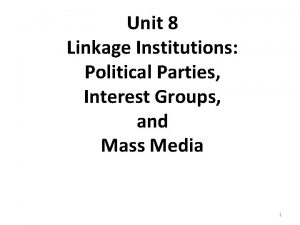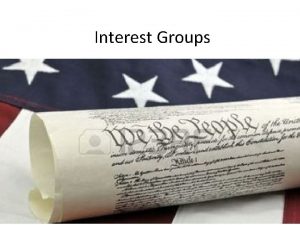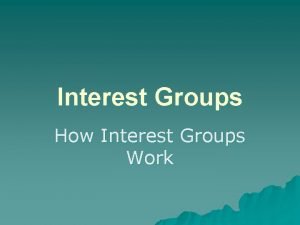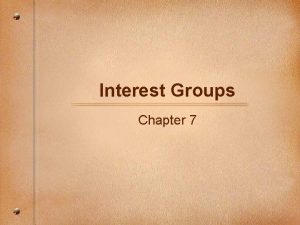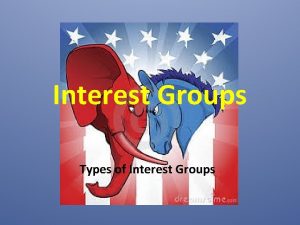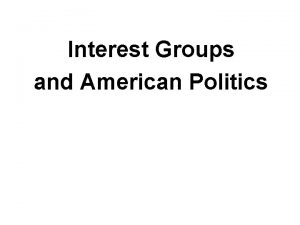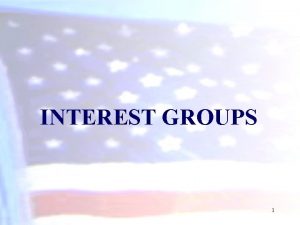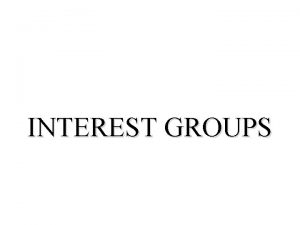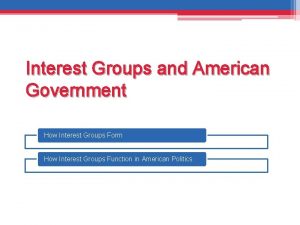Interest Groups and American Politics Definition of interest












- Slides: 12

Interest Groups and American Politics

Definition of interest group An association of people with shared policy goals and strategies for influencing public policymaking. The leaders of such groups are not politicians, but rather, persons trying to influence the behavior of politicians.

Theories of interest groups and the distribution of power in America • Pluralist theory • Elite theory

Pluralist theory: – Politics is mainly a competition among groups, each one pressing for its own preferred policies. – Many centers of power and many diverse, competing groups. – No group wins or loses all the time. – Groups provide the key link between the people and the government. – No one group is likely to become too dominant. – A group’s resources affect its influence. – Groups that are weak in one resource (such as money) can use another (such as intensity of commitment or cleverness of strategy).

Elite theory (a disagreement with pluralist theory) – Society is divided along class lines and an upper-class elite rules. – Numerous groups mean nothing, because power is not equally divided among them. – The largest corporations hold the most power. – Corporate elites are willing to lose the minor policy battles, but work to win the major policy issues in their favor. – Lobbying is a problem because it benefits the few at the expense of the many.

Types of interest groups and lobbies • economic – labor – agriculture – business • Ideological (e. g. , environment) • identity/equality interests • consumer and public interest • single-issue lobbies (ex: groups for and against abortion and gun control)

Are the largest groups always the most successful? No. – Every interest group has both a potential membership and a smaller actual membership. – Free-Rider problem: Some people don’t join interest groups because they benefit from the group’s activities without officially joining. – The bigger the group, the larger the free-rider problem. (Olson’s law of large groups) – Large groups are difficult to keep organized. – Small groups are often better organized and more focused on the group’s goals.

How interest groups influence policy 1. Direct lobbying of legislators. --Lobbyists in Congress meet with lawmakers, provide research information, testify before committees, and draft desired bills. --Lobbyists know better than to wastetime on legislators opposed to their goals. --In the past, a lobby group could directly pay a Congress member an honorarium for a speaking engagement. This is no longer legal.

2. Litigation Prime example: NAACP, all through the twentieth century. Also, American Civil Liberties Union (ACLU).

3. Grassroots campaigns to mobilize support. 4. Use of Political Action Committees (PACs) to reward and punish politicians in election campaigns. 5. Coalition-building with other interest groups.

Lobbying and the Law: Professional lobbyists and formal lobby groups must register with the clerk of the House and the secretary of the Senate; must disclose for whom they are lobbying and on what terms. Applies to persons who spend at least 20% of their time lobbying or get paid at last $2, 500 in six months for lobbying, and organizations that spend $10, 000 in a quarter on lobbying. Tax-exempt groups, such as churches, are exempt. Applies only to lobbying of legislators and bureaucrats. All else is protected under the First Amendment.

Honorarium, speaker’s fee paid to a legislator, illegal now. Contributions to official election campaigns and political parties are limited.
 Chapter 8 lesson 5 african american culture and politics
Chapter 8 lesson 5 african american culture and politics What is interest aggregation
What is interest aggregation How are ethnic groups and religious groups related
How are ethnic groups and religious groups related Interest groups free rider problem
Interest groups free rider problem The nature of interest groups
The nature of interest groups Chapter 9 section 3 interest groups at work
Chapter 9 section 3 interest groups at work A virtue of interest groups is that
A virtue of interest groups is that Interest groups linkage institutions
Interest groups linkage institutions Proliferation of interest groups
Proliferation of interest groups State two characteristics of interest groups
State two characteristics of interest groups Interest groups vs social movements
Interest groups vs social movements Chapter 9 section 2 types of interest groups
Chapter 9 section 2 types of interest groups Linkage institutions examples
Linkage institutions examples
